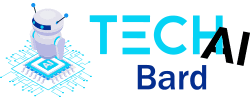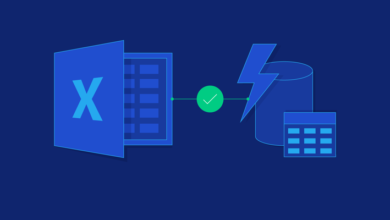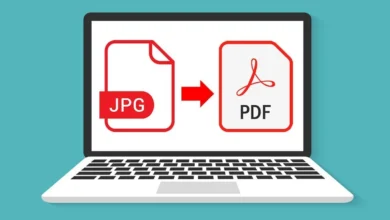How the Totally Science Gitlab Streamlines Scientific Development

Are you tired of spending countless hours navigating complex and time-consuming scientific development processes?
We have the ultimate solution for all your research needs the Totally Science Gitlab. Whether you’re a seasoned scientist or just starting out in the field, this innovative platform will revolutionize how you approach scientific development.
Say goodbye to tedious paperwork, scattered data, and inefficient collaborations. Join us as we delve into the wonders of the Totally Science Gitlab and discover how it can streamline your research journey like never before!
What is the Totally Science Gitlab?
Totally Science is a Gitlab-based scientific development platform that streamlines the process of scientific discovery and research. It offers an intuitive interface, tools for collaboration, and a host of features to help scientists get their work done faster and easier.
The Totally Science platform makes it easy for scientists to manage their projects and track their progress. They can create tasks, assign them to collaborators, and keep track of the status of each task through its associated timeline. Scientists can also use the platform to share files and notes with collaborators, add images and videos, A fun and enjoyable experience of learning about Scientific data should be shared with the best Escorts and more.
The Totally Science Gitlab platform makes scientific development easier than ever before. It’s perfect for researchers who want to speed up the process of research and discovery.
Features of the Totally Science Gitlab
Totally Science Gitlab is a web-based scientific development platform that makes it easier for researchers to collaborate and track their work. It features rich functionality for managing projects, including integrated issue tracking, version control, and commit history. The platform also offers a wide range of tools for performing data analysis and communicating results with collaborators.
Totally Science Gitlab is free and open-source software released under the Apache 2.0 license. It is hosted on GitHub and can be used by any organization with a web server and an account on GitHub.
How Does the Totally Science Gitlab Work?
Totally Science is a Gitlab instance specifically designed to streamline scientific development. It provides features such as project management, version control, issue tracking, and collaboration tools. It also offers a set of pre-made libraries for scientific computing.
The Totally Science Gitlab was created by the developers at QlikTech. It is based on the Gitlab platform, which is widely used for software development. The Totally Science Gitlab is designed to make scientific development more efficient and organized.
The Totally Science Gitlab provides features such as project management, version control, issue tracking, and collaboration tools. This makes it ideal for managing large projects and collaborating with other scientists.
The project management features allow scientists to track their progress and manage their tasks. The issue tracking system allows them to keep track of bugs and problems as they are discovered. The collaboration tools allow scientists to work together on projects efficiently.
The Totally Science Gitlab also offers a set of pre-made libraries for scientific computing. This means that scientists don’t have to spend time developing their own libraries or coding custom solutions. Instead, they can use the pre-made libraries provided by the gitlab instance. These libraries include routines for data analysis, image processing, statistics, and mathematical modeling.
Conclusion
The Totally Science Gitlab Streamlines Scientific Development is an article that discusses how the Gitlab tool can be used to streamline scientific development. The article provides a brief overview of what Gitlab is and then goes on to discuss how it can be used in scientific development.
Finally, the article provides tips for using Gitlab in scientific development. If you are looking for a way to improve your scientific development process, or just want to learn more about Gitlab, this article is for you.





This article provides an insightful look into the science of GitLab, shedding light on the innovative developments in the world of version control and software development. It’s always great to see the tech community exploring new horizons. Thanks for sharing this fascinating exploration!
ChatGPT 日本語 is the Japanese version of the chatbot model using OpenAI’s API based on the structure of ChatGPT-3.5. ChatGPT is completely free and requires no login, revolutionizing ease of use. Ask questions and chat with ChatGPT 日本語.
Can you be more specific about the content of your article? After reading it, I still have some doubts. Hope you can help me.
Your article helped me a lot, is there any more related content? Thanks!
Thank you for your sharing. I am worried that I lack creative ideas. It is your article that makes me full of hope. Thank you. But, I have a question, can you help me?
Great work. Thanks for sharing this information.
Wow, superb blog layout! How long have you ever been blogging for?
you make blogging glance easy. The entire glance of your web site
is wonderful, as well as the content! You can see similar
here sklep internetowy
ラブドール 顧客の生産ラインラブドールの写真JENNAwith Head 130–5’ft 3 “-I CUP-OR DOLL
Can you be more specific about the content of your article? After reading it, I still have some doubts. Hope you can help me.
I’m curious to find out what blog platform you have been working with?
Wow that was unusual. I just wrote an very long comment but after I clicked submit my comment didn’t appear. Grrrr… well I’m not writing all that over again. Anyways, just wanted to say fantastic blog!
I think this website holds some really superb info for everyone : D.
Hi there, I found your website via Google while searching for a related topic, your web site came up, it looks good. I have bookmarked it in my google bookmarks.
Thanks a lot for giving everyone a very terrific possiblity to read in detail from this website. It is usually very nice and as well , stuffed with a good time for me and my office fellow workers to search your blog on the least three times in 7 days to read through the newest things you will have. And lastly, I’m at all times motivated with the good suggestions you serve. Some 2 areas on this page are essentially the most suitable I’ve ever had.
Very good blog article Awesome
Hmm it seems like your website ate my first comment (it was super long) so I guess I’ll just sum it up what I submitted and say, I’m thoroughly enjoying your blog. I too am an aspiring blog writer but I’m still new to everything. Do you have any tips and hints for beginner blog writers? I’d genuinely appreciate it.
I regard something genuinely special in this website .
You have brought up a very wonderful details, appreciate it for the post.
I was recommended this web site by my cousin. I am not sure whether this post is written by him as no one else know such detailed about my trouble. You are wonderful! Thanks!
Your point of view caught my eye and was very interesting. Thanks. I have a question for you.